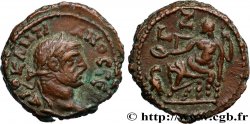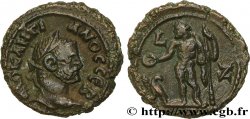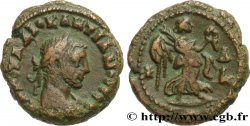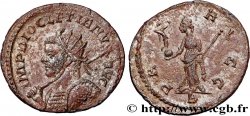E-auction 162-98978 - brm_265087 - DIOCLETIAN Pseudo ou néo-aurelianus
You must signin and be an approved bidder to bid, LOGIN TO BID. Accounts are subject to approval and the approval process takes place within 48 hours. Do not wait until the day a sale closes to register. Clicking on « bid » constitutes acceptance of the terms of use of cgb.fr private e-auctions.
Bids must be placed in whole Euro amounts only. The sale will start closing at the time stated on the item description; any bids received at the site after the closing time will not be executed. Transmission times may vary and bids could be rejected if you wait until the last second. For further information ckeck the E-auctions F.A.Q.
NO BUYER'S FEE.
NO BUYER'S FEE.
| Estimate : | 75 € |
| Price : | 19 € |
| Maximum bid : | 19 € |
| End of the sale : | 23 May 2016 14:46:00 |
| bidders : | 8 bidders |
Type : Pseudo ou néo-aurelianus
Date: 296
Mint name / Town : Antioche
Metal : copper
Diameter : 18,5 mm
Orientation dies : 6 h.
Weight : 3,01 g.
Officine: 1re
Coments on the condition:
Exemplaire sur un peti flan épais bien centré des deux côtés. Beau portrait inhabituel de Dioclétien. Usure régulière au revers. Jolie patine vert foncé
Obverse
Obverse legend : IMP C C VAL DIOCLETIANVS P F AVG.
Obverse description : Buste radié, drapé et cuirassé de Dioclétien à droite, vu de trois quarts en avant (A).
Obverse translation : "Imperator Cæsar Caius Valerius Diocletianus Pius Felix Augustus", (L’empereur césar Caius Valère Dioclétien pieux heureux auguste).
Reverse
Reverse legend : CONCORDIA MILI-TVM/ *A// ANT.
Reverse description : L'empereur et Jupiter debout face à face. Dioclétien est à gauche, tenant un sceptre court de la main gauche et recevant un globe nicéphore de Jupiter, nu debout à droite, tenant un sceptre de la main gauche.
Reverse translation : “Concordia Militum”, (La Concorde des soldats).
Commentary
Poids très léger. Rubans de type 3. Ptéryges cloutés sous le paludamentum. C’est la première fois qu nous proposons ce type à la vente pour l’atelier d’Antioche qui semble plus rare que ne le laissent supposer les ouvrages généraux.







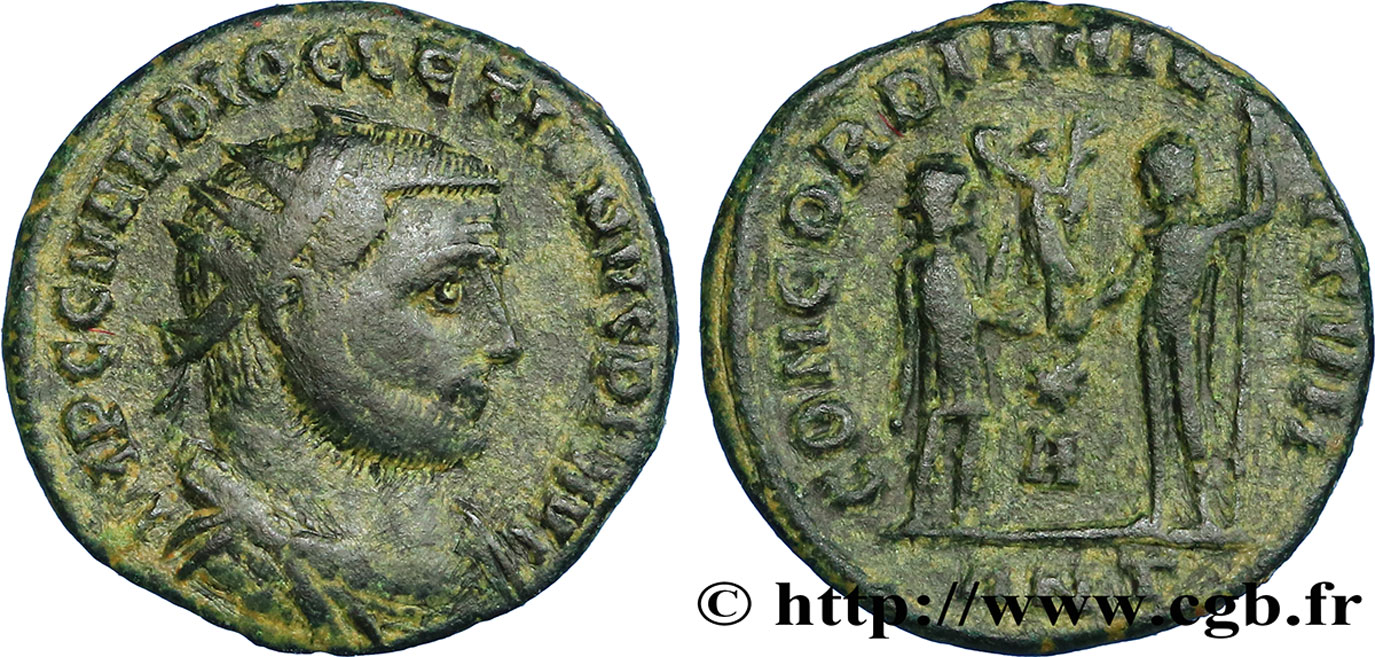
 Report a mistake
Report a mistake Print the page
Print the page Share my selection
Share my selection Ask a question
Ask a question Consign / sell
Consign / sell
 Full data
Full data
